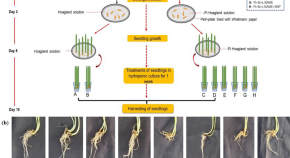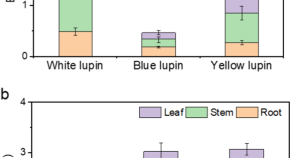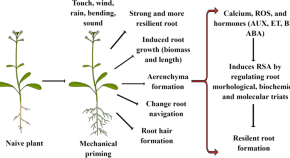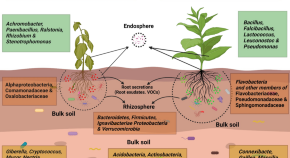Nanoparticles and root traits: mineral nutrition, stress tolerance and interaction with rhizosphere microbiota
Authors (first, second and last of 7)

Collection
Roots have a vital role in cultivating the proficiency of water and nutrient acquisition, food storage, and soil-microbe interaction, and they can serve as a source of various medicinal compounds.
This topical collection highlights the role of roots in regulating mineral nutrient acquisition under changing environmental conditions. Areas included in this collection includes mechanisms of nutrient transport in roots; the physiological and biochemical implications of mineral nutrients and their cross-talk with signalling molecules such as nitric oxide (NO) or hydrogen sulphide (H2S); and the contribution of phytohormones to root development and overall life cycle of plants under changing environmental conditions.
Durgesh Kumar Tripathi is a Senior Assistant Professor and Joint Coordinator of the Amity Institute of Organic Agriculture, Amity University Uttar Pradesh, Noida, India. He is working on the functions of plant cells, including roots and shoots, towards silicon and nano silicon nutrition, and its deposition and distribution under normal as well as stress conditions. He is also studying the mechanisms of signaling and cross talk of NO, H2S, IAA with Nano nutrients (Si, Zn, Fe, and P) and toxic nanoparticles (Ag, Cu, and Al) on the roots of model crops i.e. rice, wheat, barley, Brassica, and tomato under normal and stress conditions.
Shri Ram Yadav is an Associate Professor at Department of Biosciences and Bioengineering of Indian Institute of Technology Roorkee, India. His primary research focus is the molecular mechanism underlying establishment of fibrous root architecture in crop plants using molecular genetics and functional genomics approaches. His research interests include epigenetic, transcriptional, and hormonal control of genetic reprogramming during cell-fate transition and tissue trans-differentiation using shoot-borne adventitious roots as model system.
Francisco J. Corpas is a Research Professor of the Spanish National Research Council (CSIC) with more than 30 years of research experience in the metabolism of Reactive Oxygen, Nitrogen, and Sulfur Species (ROS, RNS, and RSS) in higher plants under physiology and environmental stress conditions using Arabidopsis thaliana and plants of agricultural interest. Special interests are the implications of these reactive species in fruit ripening and the nitro-oxidative metabolism of plant peroxisome. He was Head of the Dept of Biochemistry, Cell and Molecular Biology of Plants (2014-2018) at “Estación Experimental del Zaidín”-CSIC, Granada Spain.


































